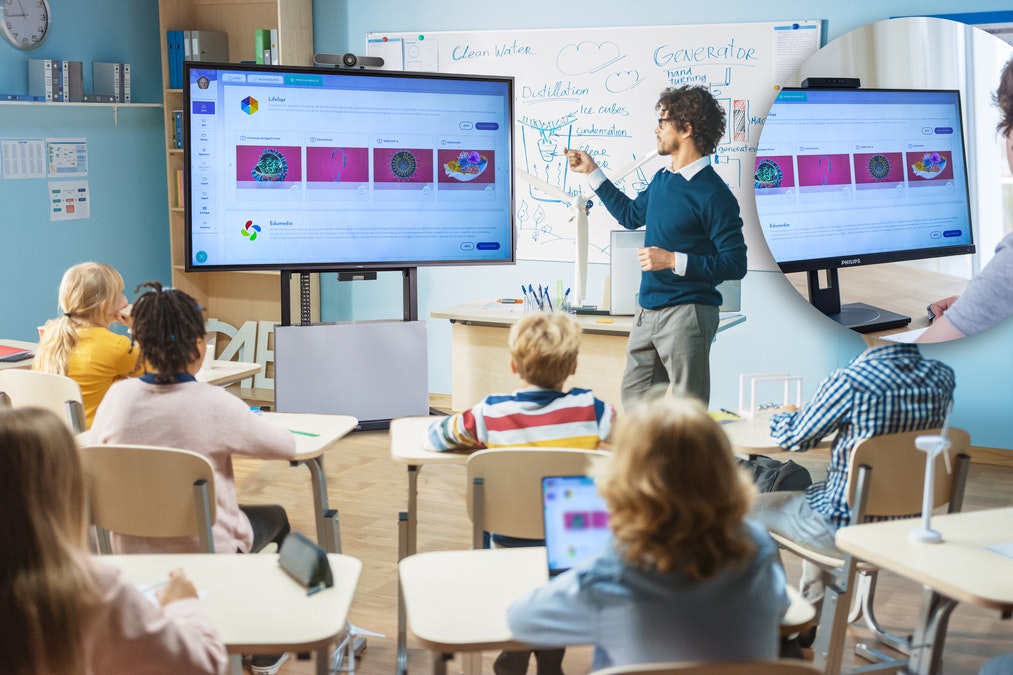Improve Your Child’s Performance with Primary Science Tuition Singapore
Improve Your Child’s Performance with Primary Science Tuition Singapore
Blog Article
Discover the Vital Advantages of Understanding Key Science for Young Students
The significance of primary science education for young students prolongs much beyond mere knowledge acquisition; it offers as a basic pillar in developing important skills such as essential reasoning, analytical, and creativity. Involving with clinical ideas through inquiry-based and interactive tasks not only grows inquisitiveness however also lays the foundation for durable, confident students.
Enhancing Essential Assuming Skills
Fostering crucial assuming abilities in young learners is crucial for their cognitive advancement and future academic success. Essential thinking enables youngsters to evaluate information, evaluate proof, and make informed choices, which are essential abilities in today's information-rich culture. By participating in scientific questions, young students can enhance these abilities as they explore ideas via thinking, monitoring, and experimentation.
In main scientific research education, teachers can facilitate important reasoning by encouraging trainees to ask inquiries, formulate hypotheses, and carry out experiments. This hands-on strategy allows kids to practice analytical and create logical reasoning skills. When trainees explore the properties of materials or the principles of movement, they discover to evaluate their findings critically and draw conclusions based on evidence.
Additionally, discussions and collective jobs can promote essential reasoning by providing opportunities for learners to verbalize their thoughts, difficulty assumptions, and think about diverse perspectives. By creating an encouraging setting that values inquiry and reflection, educators can support important believing skills that empower young students to end up being long-lasting learners and independent thinkers. Ultimately, enhancing these abilities lays a durable structure for their future scholastic undertakings and individual growth.
Promoting Inquisitiveness and Expedition

Primary scientific research education and learning supplies a structured setting where young students can explore different sensations via hands-on experiments and monitorings. By allowing them to connect with materials and participate in inquiry-based learning, educators create possibilities for children to formulate theories, evaluate their concepts, and reason. Such experiences nurture a sense of marvel and excitement concerning scientific research.

Building Confidence in Problem Solving
Structure self-confidence in analytic is an essential component of primary science education that empowers young students to come close to obstacles with durability and imagination - primary science tuition Singapore. When youngsters are motivated to engage with scientific principles with hands-on activities and inquiry-based knowing, they develop essential skills in important thinking and evaluation. This process not just enhances their understanding of clinical principles however additionally promotes a feeling of ownership over their discovering
To build confidence, instructors ought to develop a supportive atmosphere where blunders are deemed possibilities for growth as opposed to failings. This encourages trainees to take threats and explore numerous solutions to issues. By giving scaffolding and guidance, instructors can aid pupils navigate complicated jobs, progressively enhancing their self-reliance in analytic scenarios.
Moreover, collective knowing experiences, such as team jobs or experiments, can additionally boost pupils' self-confidence as they find out to express their ideas and pay attention to others' viewpoints. These communications support social abilities and enhance the idea that analytical is typically a cumulative undertaking. Eventually, growing confidence in analytic prepares young learners for future academic obstacles and equips them with the devices essential for long-lasting understanding.
Urging Imagination and Advancement
In the realm of primary scientific research education and learning, motivating imagination and innovation is essential for growing a vibrant knowing environment. By cultivating a society where young learners can discover concepts and experiment freely, educators aid trainees develop essential believing skills and an interest for exploration. Creativity in scientific research motivates children to ask inquiries, develop hypotheses, and take part in hands-on activities that boost their creativity.
Integrating flexible projects and inquiry-based understanding into the educational program enables students to reveal their unique point of views and solutions. For circumstances, when tasked with addressing a problem pertaining to their environment, pupils can brainstorm several approaches, causing inventive end results that display their creativity. This not just go to my site deepens their understanding of scientific ideas but likewise infuses a sense of ownership over their understanding process.
Additionally, imaginative scientific research education nurtures partnership amongst peers, as pupils typically share concepts and improve each other's insights - primary science tuition Singapore. This collective spirit advertises not just development however likewise crucial social skills. Thus, by prioritizing imagination and technology in primary science education, we empower young learners to believe critically, accept difficulties, and picture opportunities, laying a solid foundation for lifelong discovering and expedition
Planning For Future Understanding Obstacles
Young students' capacity to browse future discovering difficulties depends upon a solid foundation in primary science education and learning. This fundamental understanding outfits pupils with important believing skills and a systematic method to problem-solving, important official site for tackling intricate concerns in an ever-evolving globe. Main science cultivates inquiry-based understanding, motivating trainees to ask questions, discover theories, and participate in hands-on experiments.
As they develop these abilities, learners become adept at assessing information, recognizing patterns, and attracting notified final thoughts. Such competencies are essential not only in scientific areas but additionally in engineering, math, and technology (STEM), where interdisciplinary knowledge is significantly important.
Moreover, main science education and learning grows a sense of curiosity and durability in young learners, allowing them to see obstacles as possibilities for development. As they experience and get over challenges in their clinical explorations, they develop self-confidence in their ability to innovate and adjust.
Ultimately, a strong structure in primary science not just prepares young learners for academic searches but likewise outfits them with the tools needed for long-lasting knowing and flexibility in a rapidly altering global landscape. By buying key science education, we are buying the future potential of our learners.
Final Thought
Recognizing main science is important for young learners, as it fosters crucial thinking, inquisitiveness, and creative thinking. Inevitably, the advantages of main science education prepare youngsters for future scholastic quests and instill long-lasting understanding routines vital for flourishing in an ever-evolving world.
The importance of key scientific research education for young learners expands much beyond plain understanding purchase; it serves as a basic pillar in developing essential abilities such as essential reasoning, analytical, and creativity. By developing a helpful atmosphere that values inquiry and representation, teachers can nurture essential believing skills that encourage young learners to come to be lifelong students and independent thinkers. Therefore, by focusing on imagination and innovation in key science education, we equip young students to believe seriously, embrace obstacles, and visualize opportunities, laying a strong foundation for long-lasting knowing and expedition.
Young learners' capability to browse future learning difficulties pivots on a solid structure in key science education go to website and learning.Recognizing main scientific research is essential for young students, as it cultivates vital reasoning, curiosity, and creative thinking.
Report this page